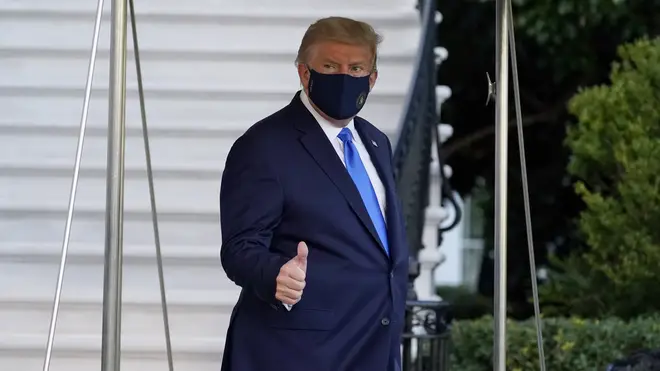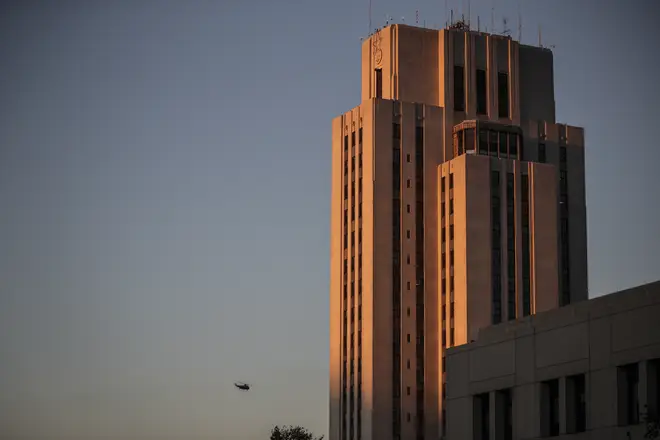
Shelagh Fogarty 1pm - 4pm
3 October 2020, 08:39

Donald Trump has been admitted to hospital after being diagnosed with coronavirus, but what treatments is he receiving?
Shortly after announcement that the US President was being taken to Walter Reed Military Medical Centre where he is expected to remain for the next few days.
Since being admitted he has tweeted that he thinks treatment is "going well", although there are reports that he is "having trouble breathing."
His doctor confirmed that before being taken to hospital Trump received "a single eight-gram dose of Regeneron's polyclonal antibody cocktail", while he was still at the White House.
As it happened: Trump moved from White House to medical facility as a precaution
Read more: Trump claims he is 'very well' despite 'serious concerns' for his health
The drug - which is still in its experimental stages - has been called one of the most promising approaches to preventing serious illness from a Covid-19 infection.
Trump’s physician, Dr Sean Conley, said the president has also been given the antiviral drug remdesivir, which has as been shown to help some Covid-19 patients recover faster.
Trump is was taking zinc, vitamin D, an antacid called famotidine, melatonin and aspirin.

Donald Trump delivers video message after testing positive for Covid
None of those have been proven to be effective against Covid-19.
But Trump is not receiving hydroxychloroquine, a drug he widely promoted that has been shown in many studies to be ineffective for preventing or treating Covid-19.
The maker of the anti-body cocktail, Regeneron Pharmaceuticals, said the company agreed to supply a single dose, given through an intravenously, for Mr Trump at the request of his physician under “compassionate use” provisions.
Read more: Donald Trump 'thinks' treatment is going well amid reports he's 'having trouble breathing'
This is when an experimental medicine is provided on a case-by-case emergency basis while studies continue.
The new drug is in late-stage testing and its safety and effectiveness are not yet known, and no treatment has yet proven able to prevent serious illness after a coronavirus infection.

Several doctors who treat Covid-19, including Dr David Boulware at the University of Minnesota, had speculated that doctors might use the antibody drug, given that this approach has worked against other diseases in the past.
“They’re not going to just sit around and watch to see if he gets sick,” he said.
Antibodies are proteins the body makes when an infection occurs and vaccines trick the body into thinking there is an infection so it makes these antibodies.
But it can take weeks for them to form after natural infection or a vaccine.
The drugs aim to give that protection immediately, by supplying concentrated versions of one or two antibodies that worked best against the coronavirus in laboratory and animal tests

Regeneron’s drug contains two antibodies to enhance chances that it will work and the company previously developed a successful Ebola treatment from an antibody combination.
Earlier this week, Regeneron said partial results from about 275 Covid-19 patients who were not sick enough to need hospital treatment suggested it might be cutting how long symptoms last.
However, the study has not been completed, the results were only announced in a company news release and have not been published or reviewed by other scientists.